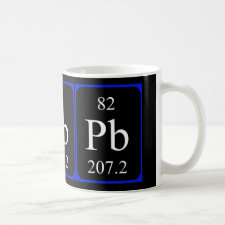
Authors: Ebrahimzadeh H, Asgharinezhad AA, Moazzen E, Amini MM, Sadeghi O
Article Title: A magnetic ion-imprinted polymer for lead(II) determination: A study on the adsorption of lead(II) by beverages.
Publication date: 2015
Journal: Journal of Food Composition and Analysis
Volume: 41
Page numbers: 74-80.
DOI: 10.1016/j.jfca.2015.02.001
Alternative URL: http://www.sciencedirect.com/science/article/pii/S0889157515000617
Abstract: In this work a variety of beverage samples had been kept in a contaminated area to investigate their lead adsorption. To determine the adsorbed Pb(II), a novel magnetic lead ion-imprinted polymer, grafted onto Fe3O4 nanoparticles, was synthesized and used as a selective sorbent for the preconcentration of Pb(II) ions. The sorbent was characterized by different techniques. The synthesized sorbent was applied for highly accurate and selective determination of Pb(II) ions absorbed from polluted air in several beverages and results were compared. To validate the method, three certified reference materials were analyzed by the proposed method and the results showed that pre-concentrating by this sorbent and subsequent determination by flame atomic absorption spectroscopy is an accurate method for lead determination in beverage samples (recoveries higher than 95%). The limits of detection and the relative standard deviations were less than 1.7 μg kg-1 and 4.1%, respectively. The sorption capacity of this new sorbent was 51.8 mg g-1. Finally, this method was used for the determination of Pb(II) ions in polluted beverage samples, and the results revealed that under equal conditions, coffee exhibits more tendency to adsorb Pb(II) ions
Template and target information: lead ion, Pb(II)
Author keywords: Lead determination, Ion-imprinted polymer, magnetic nanoparticles, Pb(II), food analysis, Food composition, food safety, Beverage samples



Join the Society for Molecular Imprinting

New items RSS feed
Sign-up for e-mail updates:
Choose between receiving an occasional newsletter or more frequent e-mail alerts.
Click here to go to the sign-up page.
Is your name elemental or peptidic? Enter your name and find out by clicking either of the buttons below!
Other products you may like:
 MIPdatabase
MIPdatabase









